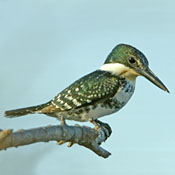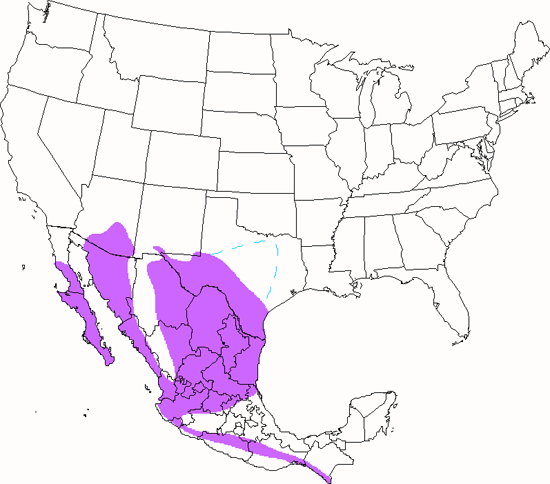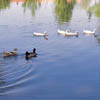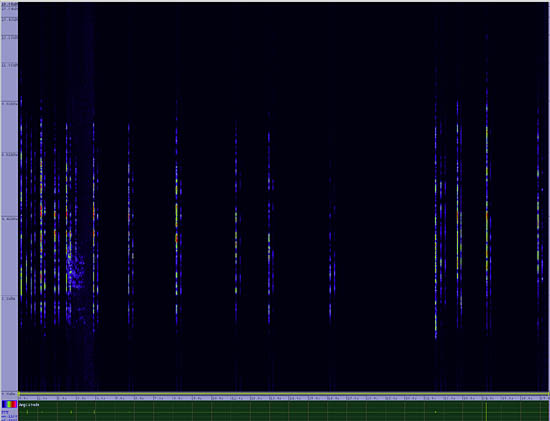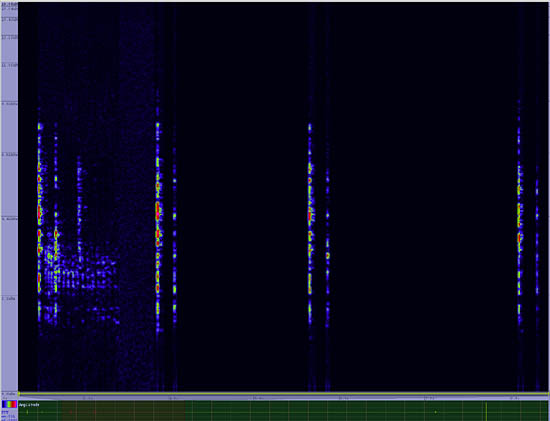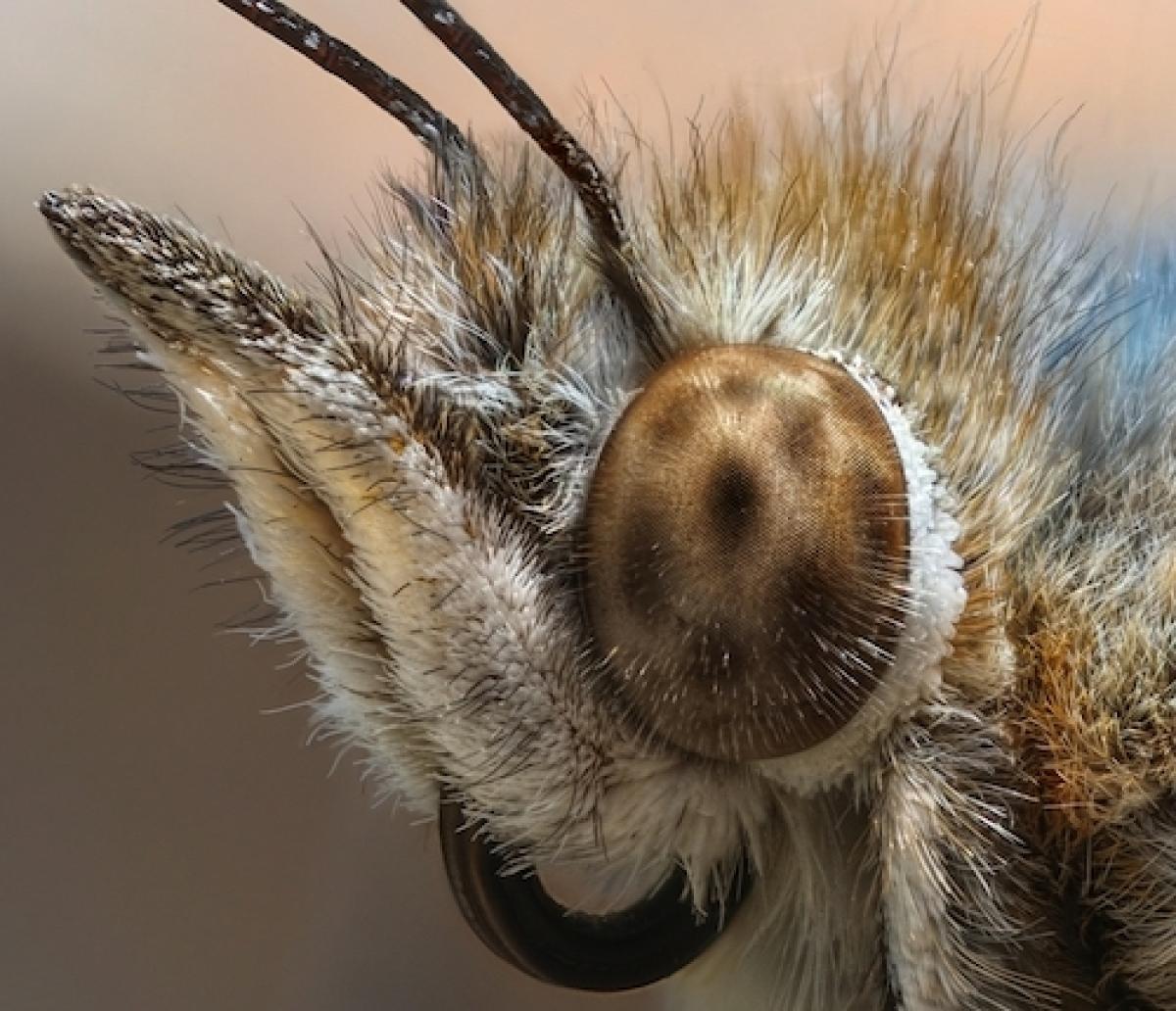Green Kingfisher
Chloroceryle americana

Perching
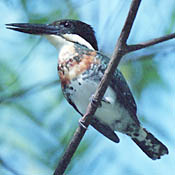
Length: 9 in. (22 cm )
Found along the edge of small streams, lakes, marshes and ponds, this small kingfisher sits on a perch low over the water scanning the surface intently for fish. It dives shallowly into the water to catch its prey. More frequently, however, you are likely to see nothing but a streaking form flying low and quickly along the water\s surface as it moves from one fishing perch to the next. Its nest is a tunnel deep into the side of a sandy bank near the water.'
The four-digit banding code is GKIN.
Bibliographic details:
- Article: Green Kingfisher
- Author(s): Dr. Biology
- Publisher: Arizona State University School of Life Sciences Ask A Biologist
- Site name: ASU - Ask A Biologist
- Date published: 13 Jul, 2017
- Date accessed: 28 July, 2025
- Link: https://askabiologist.asu.edu/activities/bird/green-kingfisher
APA Style
Dr. Biology. (Thu, 07/13/2017 - 15:37). Green Kingfisher. ASU - Ask A Biologist. Retrieved from https://askabiologist.asu.edu/activities/bird/green-kingfisher
Chicago Manual of Style
Dr. Biology. "Green Kingfisher". ASU - Ask A Biologist. 13 Jul 2017. https://askabiologist.asu.edu/activities/bird/green-kingfisher
MLA 2017 Style
Dr. Biology. "Green Kingfisher". ASU - Ask A Biologist. 13 Jul 2017. ASU - Ask A Biologist, Web. https://askabiologist.asu.edu/activities/bird/green-kingfisher
Be Part of
Ask A Biologist
By volunteering, or simply sending us feedback on the site. Scientists, teachers, writers, illustrators, and translators are all important to the program. If you are interested in helping with the website we have a Volunteers page to get the process started.



